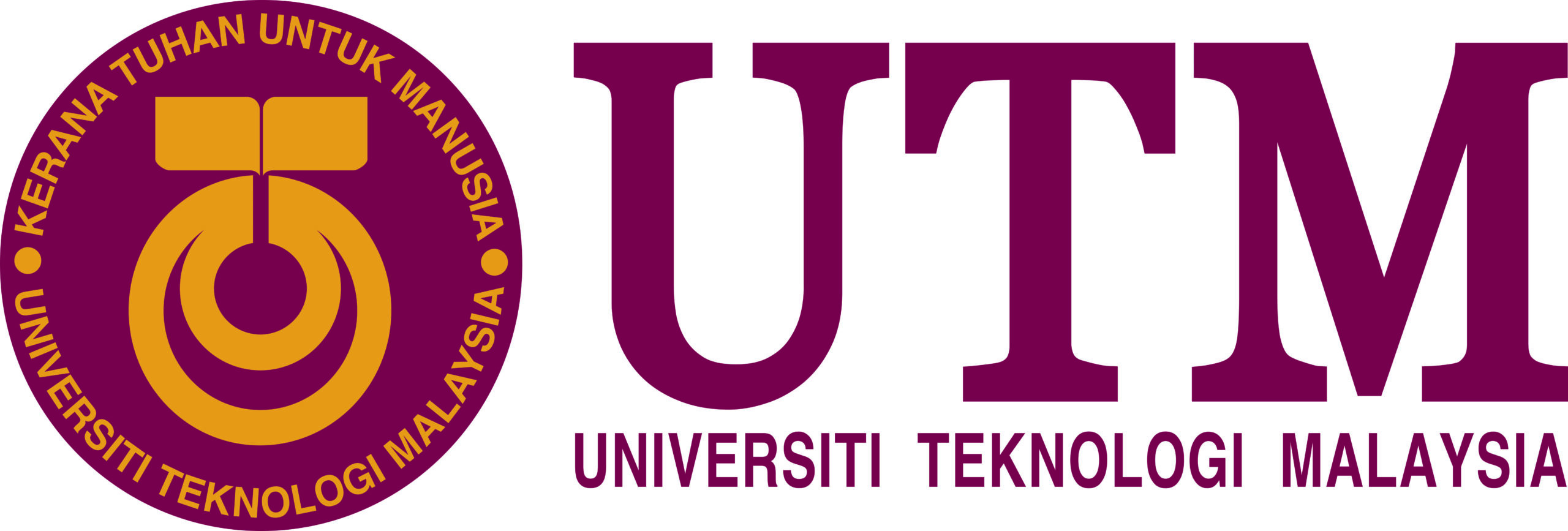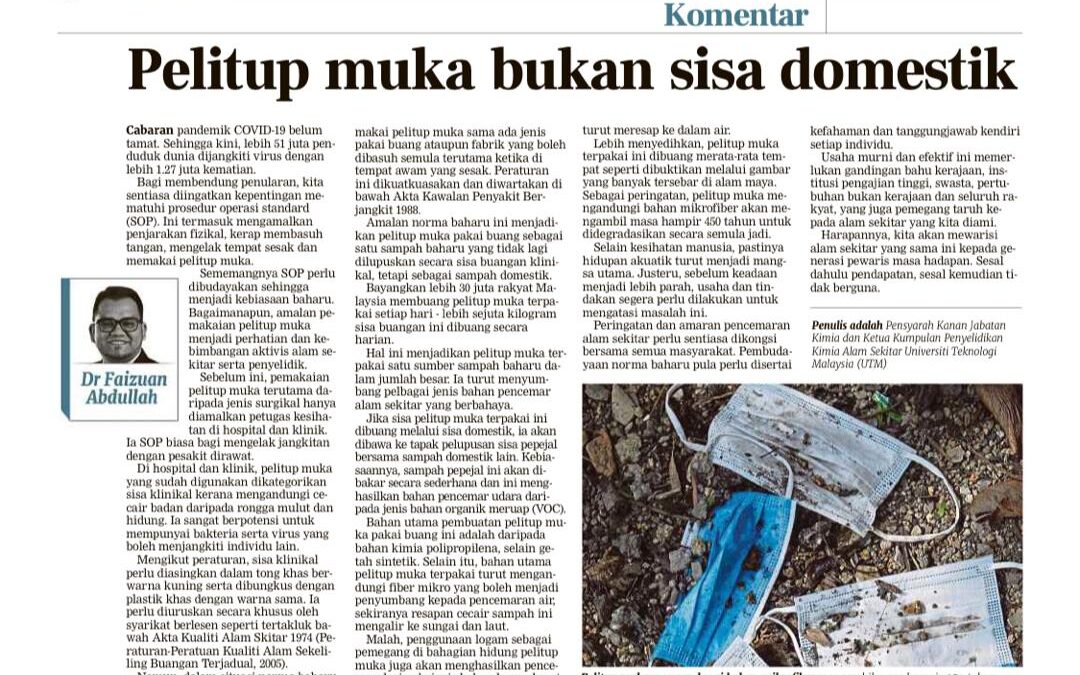The standard operating procedures (SOPs) in accordance with the precautions is regulated by the Ministry of Health Malaysia, particularly concerning public places. This inadvertently bring about a new normal among the people of Malaysia, including wearing face masks while being outside of ones’ home. With the birth of this particular new normal, there has also been has intrigue and debates not only to environmentalists, but also researchers on the consequences and aftermath of face masks.
In pre COVID-19 times, the use and sight of a blue surgical mask would only be synonymous to hospital surgeons or those working in hospitals and clinics, as this is the SOP of those in that field to curb infections and contaminations from and to the patients. These standard-issued face masks worn by these professionals are categorized as scheduled waste, as they should, having been in contact and proximity of infected bodily fluids that are contagious. Yellow bins are designated for these type of waste, with the waste themselves inside a specialized yellow plastic bag, and are handled for disposal by a licensed waste contractor, as indicated in Akta Kualiti Alam Sekitar 1974 (Peraturan – Peraturan Kulaiti Alam Sekeliling Buangan Terjadual, 2005).
Now, however, every person in Malaysia, be it young or old, professionals or laymen, are prominently wearing these face masks, from the now ubiquitous blue surgical ones to washable fabric to homemade colourful types. This came into effect as a regulation from the government of Malaysia has mandated the wearing of face masks in public as of 1st of August 2020. This regulation was gazetted under Akta Kawalan Penyakit Berjangkit 1988, of which dictated a fine of RM1000 can be met upon an individual not adhering to wearing face mask. Consequently, places of work, shopping malls and stores, public and private institutions have also mandated the wearing of face masks upon entering the premises. Among Malaysians, the typical surgical face masks are more preferred rather than washable fabric, as these are more accessible, and the ceiling price are regulated and monitored by the government.
With this new normal, a certain new waste has also emerged. The supposedly scheduled waste of surgical masks are now prominent in household wastes, as the wearers are no longer professionals with access to yellow bins and elected waste contractors, but everyday people with only their trash bin to dispose their daily face masks. It is estimated if 30 million of Malaysians are disposing their face masks daily, then this amounts to at least 1 million kilograms of worn face masks waste being generated on a daily basis. This is utmost concerning, as this amount of waste can be very detrimental to the environment, not to mention the well-placed fear that it could also give birth to new types of pollutants.
Logistically, household wastes are disposed in landfills, meaning should the worn face masks be thrown in with regular trash, then they too would end up in landfills, where the wastes are burnt. Burning the face masks would release volatile organic compounds (VOC) into the air as pollutant, originating from the main component of a surgical face mask, polypropylene, and also the synthetic rubber of the ear loops.
One of the other main components of a surgical face mask is microfibre, which is a pollutant harmful to oceans and rivers, should the microfibre be introduced into these water bodies via leaching from landfills. Not only that, the metal material used in face mask to hold on to your nose bridge can also produce pollutants such as cadmium and chromium.
As such that it is, we are also reminded often in social media postings of the severity of worn face masks being recklessly thrashed on roadsides, piling out of garbage bins and on the floors of eateries and stores. The expected degradation time of microfibre extend up to 450 years, endangering aquatic life in the process.
Hence, a viable solution to this new type of waste management is in dire need before the situation spirals into catastrophic proportions. This effort must include government bodies, non-governmental organizations, higher learning institutes, private sectors, and most especially all beloved Malaysians. We are the ones that are in stake, for it is us if not our legacy that will inhabit and inherit this Earth, in all its beauty and abundance. As the saying goes, it is no use crying over spilt milk.


Recent Comments